MercoPress. South Atlantic News Agency
Tag: Juan Guaido
-
Friday, January 25th 2019 - 10:15 UTC
Russia, China and Turkey in support for Maduro as they warn Washington not to intervene
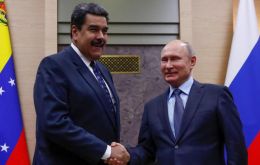
Russia on Thursday accused the United States of trying to usurp power in Venezuela and warned against a military intervention by confronting Washington and the European Union, which backed protests against one of Moscow's closest allies, Venezuelan partial recognized President Nicolás Maduro.
-
Thursday, January 24th 2019 - 09:38 UTC
Repression in Venezuela left 16 dead, according to the IACHR
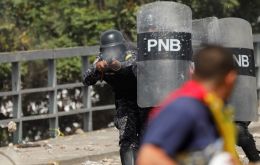
The Inter-American Commission on Human Rights (IACHR) estimated the number of deaths in clashes between protesters and security forces in Venezuela at 16.
-
Thursday, January 24th 2019 - 09:35 UTC
Guaido recognized as interim president by Lima Group and US; Uruguay and Mexico call for negotiations
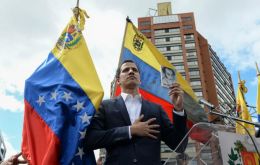
Most Latin American nations recognized Venezuelan opposition leader Juan Guaido as interim president on Wednesday, leaving Nicolas Maduro ever more isolated as he faces unrest at home and threats from the United States.
-
Thursday, January 24th 2019 - 09:19 UTC
Venezuelan military brass remains loyal to Maduro and disavow Guaidó
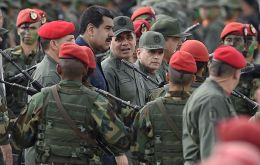
Opposition leader Juan Guaido on Wednesday swore himself in as Venezuela’s rightful commander-in-chief in direct challenge to President Nicolas Maduro, who faces growing international criticism for undermining democracy.
-
Thursday, January 24th 2019 - 06:04 UTC
Who is Juan Guaido?, proclaimed by the opposition as Venezuelan acting president
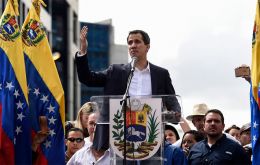
Juan Guaido has declared himself president of Venezuela — a move quickly endorsed by several Latin American countries, as well as Canada and the United States. Just two months ago, many people around the world, and even inside Venezuela, may not have known Guaido's name.
-
Wednesday, January 23rd 2019 - 18:03 UTC
Trump would recognize Guaidó as president of Venezuela; Protests increase
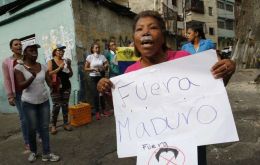
US President Donald Trump would be ready to recognize the opposition leader and president of the National Assembly (AN) of Venezuela, Juan Guaidó, as the legitimate president of Venezuela after his probable inauguration on Wednesday, according to CNN sources.
-
Wednesday, January 23rd 2019 - 08:51 UTC
Pence addresses the Venezuelan people ahead of Wednesday's protest day
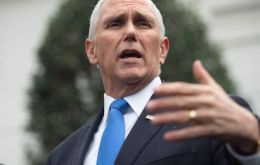
United States Vice President Mike Pence issued a video message of support to Venezuelans on Tuesday to encourage those who are protesting against President Nicolas Maduro and underline U.S. backing for opposition leader Juan Guaido.
-
Tuesday, January 22nd 2019 - 08:37 UTC
Venezuela foils uprising by National Guardsmen; massive protest march announced for Wednesday
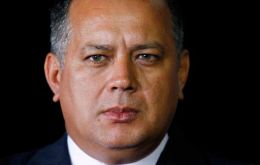
Venezuela plunged deeper into turmoil Monday as security forces put down a pre-dawn uprising by National Guardsmen that triggered violent street protests, and the Supreme Court moved to undercut the opposition-controlled congress' defiant new leadership. Socialist party chief Diosdado Cabello said 27 guardsmen were arrested and more could be detained as the investigation unfolds.
-
Friday, January 18th 2019 - 09:30 UTC
Brazilian government meets Venezuelan opposition leaders to discuss Maduro's “illegitimacy”

Brazilian and US officials met Venezuelan opposition leaders in Brasilia on Thursday to discuss the political crisis in the oil-rich country ruled by president Nicolas Maduro, Brazil's foreign ministry reported.
-
Monday, January 14th 2019 - 18:06 UTC
Uruguay: “Deep concern” about detention of the Venezuelan Parliament president
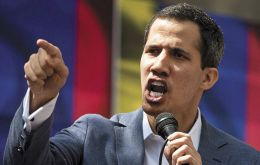
The Ministry of Foreign Affairs expressed on Monday, through a statement, its “deep concern” regarding the “serious institutional crisis” and the “acts of intimidation” that led to the arrest and subsequent release of the president of the National Assembly of Venezuela, Juan Guaidó , by officials of the Bolivarian National Intelligence Service (Sebin).
